Introduction
The 2025 International Workshop on Computing Education (IWCE 2025) will occur June 20-21 in Changsha, China, co-located with IHPCF 2025.
IWCE 2025 allows computer scientists and educators worldwide to exchange the latest ideas in computing education. We will discuss the challenges and opportunities of CC2020, competency-based learning, HPC education, etc. The theme of IWCE 2025 is “Exploring the Frontiers of High-Performance Computing and Leading the Future of Computer Education”.
IWCE 2025 Invited Speakers
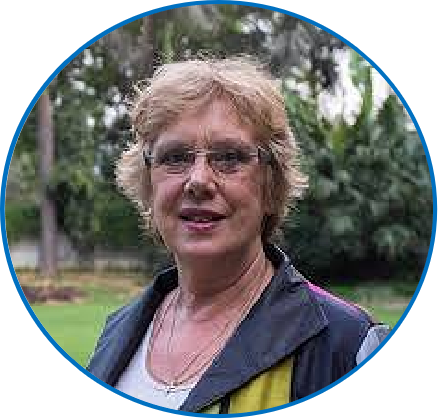
Alison Clear
Eastern Institute of Technology, New Zealand
Vice Chair
ACM Special Interest Group in Computer Science Education
Alison Clear is an associate professor and programme leader at the Auckland campus of the Eastern Institute of Technology. She has an extensive academic and professional career that has involved academic leadership in research, scholarship, teaching and curriculum development nationally and internationally and an extensive publication record in national and international conferences and journals in computing and information technology. Alison has been a member of the international ACM Educational Council, member and vice chair of the ACM Special Interest Group in Computer Science Education and Fellow of the Institute of Information Technology Professionals (IITP) and Fellow of the Computing and Information Technology Research and Education in New Zealand (CITRENZ). She is currently leading an international research project of 36 people from 20 countries to redefine the computing curricula for 2020 forward.
A Model for Development of Computing Curricula and Keeping Abreast of Technology
For many years the ACM and IEEE have developed curriculum guidelines for the now seven computing disciplines. These guidelines have been instrumental in helping computing educators globally to define and design the curricula within their own universities. With the fast pace of technology these guidelines need updating on a regular basis, technology is moving faster than they can be updated. To update a set of curricula it takes a Task Force of approximately 10 people covering geographical areas as well as competency across the discipline, at present change it is too long, costly and not timely. To keep pace with the fast pace of technology and changing landscape of computing a project to design and implement a model for a “Living Curriculum” has been established.This model will be available to meet the needs of each of the disciplines and enable fast efficient update to the curriculum. It will be community sourced, moderated and on-going. This address will describe the background to the project and present the model that has been developed to implement a “Living Curriculum” .
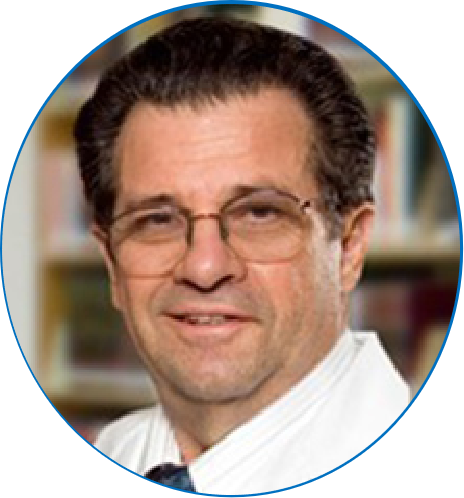
John Impagliazzo
Hofstra University, United States
Fellow
Distinguished Educator
Institute of Electrical and Electronics Engineers (IEEE)
Association for Computing Machinery (ACM)
Professor Emeritus John Impagliazzo chaired the committee that produced the 2016 ACM/IEEE Computer Engineering Curriculum Report (CE2016) and was the principal co-author and editor of CE2004. Additionally, he was a committee member who produced the ACM/IEEE Computing Curricula 2005 Report (CC2005), which defined computing disciplines and has become one of the most used documents worldwide. He co-authored the information technology (IT2017) report and was a principal co-author of the 2020 global computing curricular report (CC2020). Impagliazzo chaired the IFIP Working Group 9.7 (History of Computing), served for many years on the IEEE History Committee, chaired the ACM Accreditation Committee for twelve years, and served in various capacities on the ACM Education Board for three decades. He is an ABET program evaluator for both computing and engineering programs. As a program evaluator, team chair for governments and agencies, or an expert consultant, he has evaluated over one hundred computing and engineering programs worldwide. Impagliazzo was the founding editor-in-chief of the ACM Inroads magazine, created the IEEE Transactions on Technology and Society, produced eighteen books, published hundreds of articles, and helped develop a history of computing. Impagliazzo is a Fellow and Life Member of IEEE and a Distinguished Educator of ACM.
Caution! Avoiding Competency in Computing Education Can Be Hazardous
This presentation explores ways in which competency in computing and engineering can become sustainable in a world where technological digital advances continuously infuse people’s lives. Educational computing without competency can endanger how students learn and graduates operate in the workplace. Competency and technical performance have become central to informing students of their responsibilities to society as they enter the workplace or continue in higher education. Competency-based learning and teaching in computing and engineering have transformed into the current digital age. Efforts such as the 2024 “Metaverse Services in Computing and Engineering Education” paper, the 2023 “Infinite Possibilities: Report on the Digital Development of Global Higher Education” report, the ACM/IEEE “Computing Curricula 2020: Paradigms for Global Computing Education” report, and the 2019 “Chinese Computer Education for Sustainable Competence” (Blue Book) report support this claim. These publications directly or indirectly support a sustained competency transformation for the digital age, even though educators have yet to embrace competency-based learning in their curricula. This presentation provides helpful suggestions and shows how competency can enhance teaching and learning beyond the current educational norms.
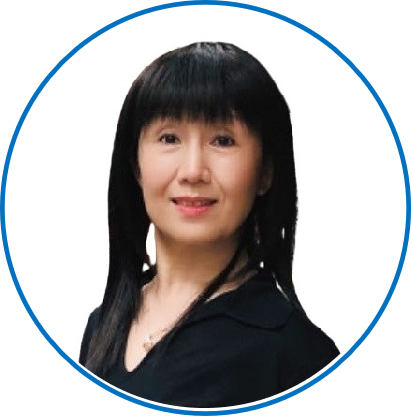
Yanjie Song
The Education University of Hong Kong (EdUHK), China
Associate Director
The Centre for Immersive Learning and Metaverse in Education (CILME) and The Centre for Excellence in Learning and Teaching (CELT) at EdUHK
Dr. Yanjie Song is a professor at Department of Mathematics and Information Technolog, associate director of the Centre for Immersive Learning and Metaverse in Education (CILME) and the Centre for Excellence in Learning and Teaching (CELT) at the Education University of Hong Kong. She obtained her PhD in Educational Technology at the Faculty of Education, the University of Hong Kong, and her MEd at the University of Leeds, UK. Her research focuses on AR, VR, AI, and the metaverse in education. She has led her team in developing award-winning applications like "VocabGo", "m-Orchestrate", and the metaverse platform "Learningverse" which is further being developed into LearningverseVR with VR and generative AI. Her team holds several patents and has secured competitive research grants. She was among the top 2% in the Stanford list of the world's most-cited scientists in education in recent years.
What are the future trends in education with immersive technologies?
With the advancement of immersive virtual environments powered by generative AI, education is surpassing the constraints of traditional physical classrooms. This presentation explores three innovative platforms developed by the speaker’s research team: the metaverse platform – Learningverse, which integrates digital humans for interactive learning; another metaverse platform with virtual reality technology – LearningverseVR, featuring a multi-modal AI agent to support engagement; and an interactive platform – iChat, enabling the creation of customisable digital human avatars for diverse educational applications. Through empirical examples, the discussion will illustrate how these immersive environments enhance learner engagement, and academic performance. By seamlessly incorporating generative AI into immersive learning environments, these technological innovations are shaping the future of education.
IWCE 2023
Programme
| August 11th, 2023 | ||
| Time | Topic | Speaker |
| 9:00~9:15 | Welcome Address | |
| 09:15~09:40 | Supercomputer Co-Design as Key Element of the HPC-Word | Vladimir Voevodin Russian |
| 9:40~10:05 | architectural Design,Evolution,and Technical Trade-Offs on the Path to Exascale | Kai Lu China |
| 10:05~10:25 | Tea Break/Group Photo | |
| 10:25~10:50 | A few research issues for sustainable development of supercomputing in China | Depei Qian China |
| 10:50~11:15 | Thoughts on Competency in Computing Education | Joe Turner USA |
| 11:15~11:40 | Deep learning numerical method and its demonstration application in high performance | Dong Liu China |
| 12:05~14:00 | Lunch | |
| 14:00~14:25 | Constructing a digital-twin of a human heart with AR/HPC | Xiaochuan Cai China |
| 14:25~14:50 | Competency in High-Performance Computing | John Impagliazzo USA |
| 14:50~15:15 | Parallel computing component model for interdisciplinary multiphysics coupling | Zhang Yang China |
| 15:15~15:40 | Acoustic Sensing: the Disign for Convenient Interaction and Smart Healthcare | Qian Zhang China |
| 15:40~15:50 | Tea Break | |
| 15:50~16:15 | Progress of High-Performance Computing in Electromagnetics | Xunwang Zhao China |
| 16:15~16:40 | Two Revolutions in Computing:A Personal History | John L. Gustafson USA |
| 16:40~17:05 | Future Computing Education for Sustainable Competency | Xiaofei Xu China |
| 17:05~17:30 | Competencies as a Framework for Software Engineering Curricula Design | Nancy Mead USA |
| 18:00~21:00 | Reception Banquet | |
| August 12th, 2023 | ||
| Time | Topic | Speaker |
| 9:00~9:25 | Computing Health and Disease for Everyone:the Silicon Patient | Hans V. Westerhoff Netherlands |
| 09:25~09:50 | High Performance Computing Based Whole human Scale Brain Simulation > | Shingo Takada Japan |
| 10:15~10:25 | Tea Break | |
| 10:25~10:50 | PowerPI-AI:A Deep Learning Framework for Solving PDEs | Chao Yang China |
| 10:50~11:15 | Automatic Generation of a Curriculum based on ACM/IEEE-CS | Ernesto Cuadros-Vargas Peru |
| 11:15~11:35 | Formulating Benchmark Standards for the Frontier of AI for Science | Cai Chun(DP) China |
| 11:35~12:00 | Construction of intrinsic parallel schemes for eigen-computation based on polyhedron grid matrix | Jiachang Sun China |
| 12:00~14:00 | Lunch | |
IWCE 2023 Invited Speakers
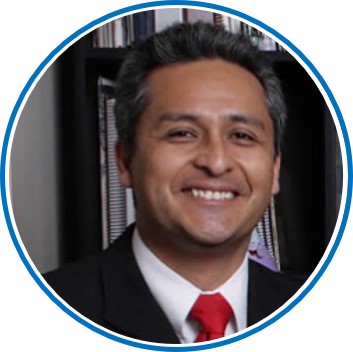
Ernesto Cuadros Vargas
Latin American Center for Computing Studies (CLEI), Peru
Member
Board of Governors of IEEE Computer Society
Chief Techology Officer
FuXion Biotech Holdings
Prof. Cuadros-Vargas received his PhD (2004) in CS at the USP-Brazil in common projects with CMU (USA) and TU-Berlin (Germany). He was a founder member of Peruvian Computer Society and president 8 years. He was also Executive Secretary of the Latin American Center on Computing (CLEI) until 2016. He was member of the IEEE-EAB (2006-2009) and the only latin american member of the Steering Committee of ACM/IEEE-CS Computing Curricula for CS (CS2013) and Computing Curricula (CC2020). Prof Cuadros has been Head of the School of Computer Science at UCSP en Arequipa Peru (2005-2016) and also at UTEC (Lima) since 2016. His main research areas are Higher Education in Computing Programs, Similarity Information Retrieval, Access Methods and Neural Networks.

Joe Turner
Computer Science at Clemson University
Fellow
Association for Computing Machinery (ACM)
Fellow
Accreditation Board for Engineering and Technology (ABET)
Fellow
Computing Sciences Accreditation Board (CSAB)
Joe Turner was Founding Head of the Department of Computer Science (now the School of Computing) at Clemson University from 1978 to 1992. He also served as Professor, and then Dean of the College of Information Systems at Zayed University in the UAE 2001-2004. He received his PhD in Computer Science from the University of Maryland in 1976. He is a Fellow of ACM, ABET, and CSAB, and he has served as Vice-President of ACM and as Chair of the ACM Education Board, a Vice-President of IFIP and as Chair of the IFIP Publications Committee, and the Founding Chair of the Seoul Accord. He has chaired more than 35 ABET accreditation reviews in 8 countries and has served as accreditation consultant for more than 50 universities in 9 countries.

John Impagliazzo
Computer Science Department, Hofstra University
Fellow
Institute of Electrical and Electronics Engineers(IEEE)
Distinguished Educator
Association for Computing Machinery(ACM)
Impagliazzo’s publications and presentations focus on computing and engineering education as well as computing and engineering performance, Quality assurance, and accreditation. They include 285 research and conference papers; nineteen books, nine book chapters; and seven technical reports. In his work as a consultant, computer scientist, mathematician, and educator he has made more than 170 presentations as a conference panelist and invited speaker.

Nancy Mead
Institute of Electrical and Electronics Engineers (IEEE)
Professor
Software Engineering at Carnegie Mellon University
Nancy Mead is a Fellow of the Software Engineering Institute and Adjunct Professor of Software Engineering at Carnegie Mellon University. Her research areas are software and security requirements engineering and software engineering and software assurance curricula. The Nancy Mead Award for Excellence in Software Engineering Education & Training is named for her.
She has more than 200 publications and invited presentations. Her awards and honors include: Life Fellow of the IEEE, Distinguished Member of the ACM, IEEE TCSE Distinguished Educator, IEEE TCSE Executive Board, Parnas Fellow at Lero the Irish Software Research Center, IEEE Distinguished Visitor Program. She has a BA, MS, and PhD in mathematics from NYU.
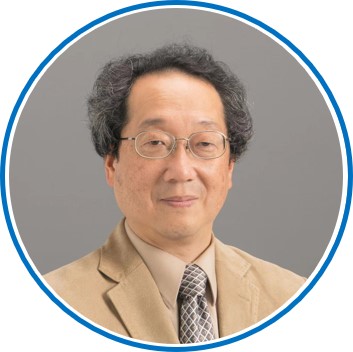
Shingo Takada
Department of Information and Computer Science, Faculty of Science and Technology, Keio University
Member
Information Systems Educational Committee of the Information Processing Society of Japan
Shingo Takada is a professor at the Department of Information and Computer Science, Faculty of Science and Technology, Keio University. He received his BE in electrical engineering, and ME and PhD in computer science from Keio University.
He was a steering committee member of the ACM/IEEE Computing Curricula (CC2020) project. He is currently a member of the Educational Committee as well as the Information Systems Educational Committee of the Information Processing Society of Japan. He has been active in various programming contests in Japan, especially the International Collegiate Programming Contest (ICPC) where he was the World Finals Director in 2007, and most recently the Japanese Regional Contest Director from 2018 to 2022. His main research area is in software engineering, especially software testing.